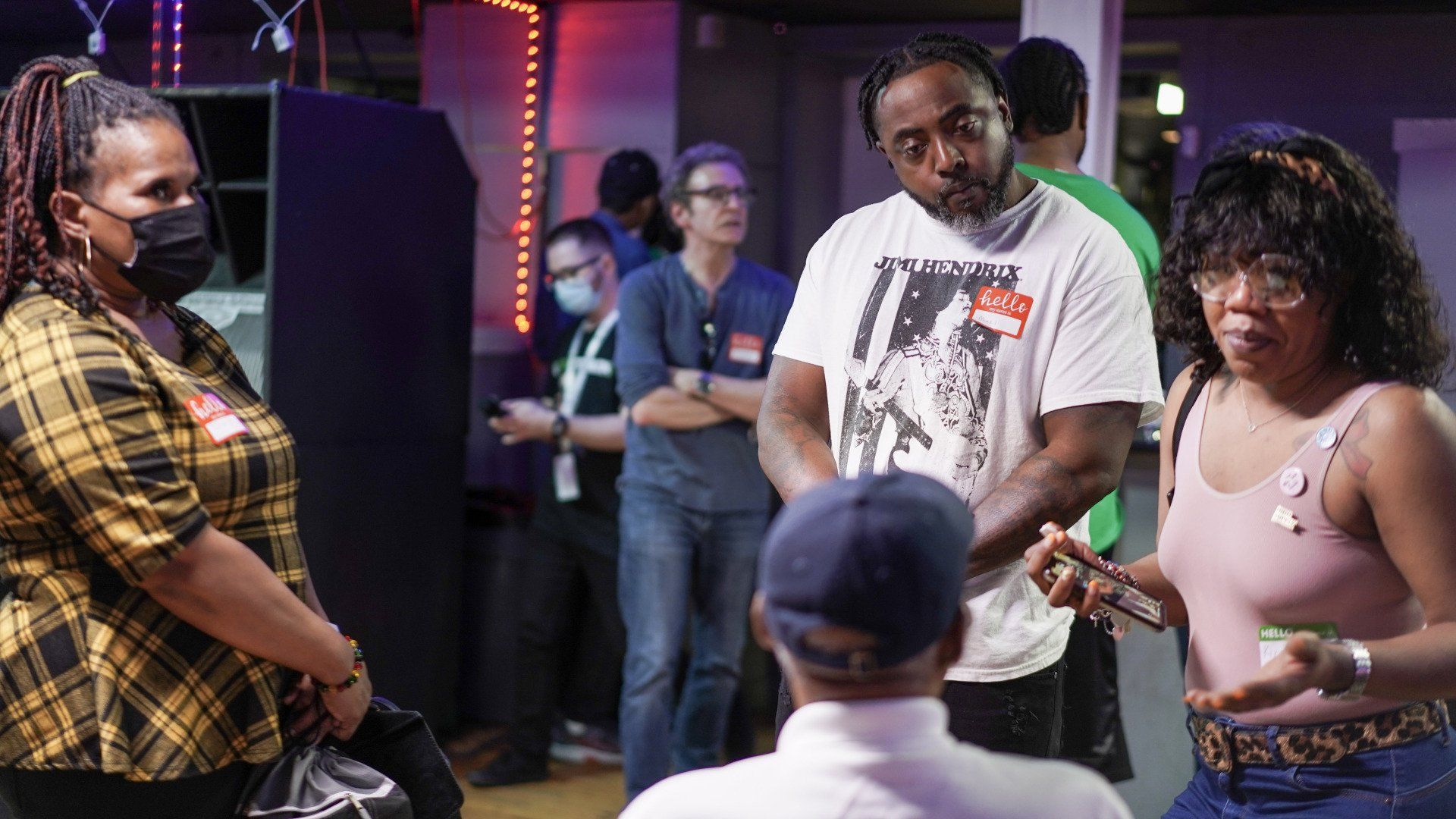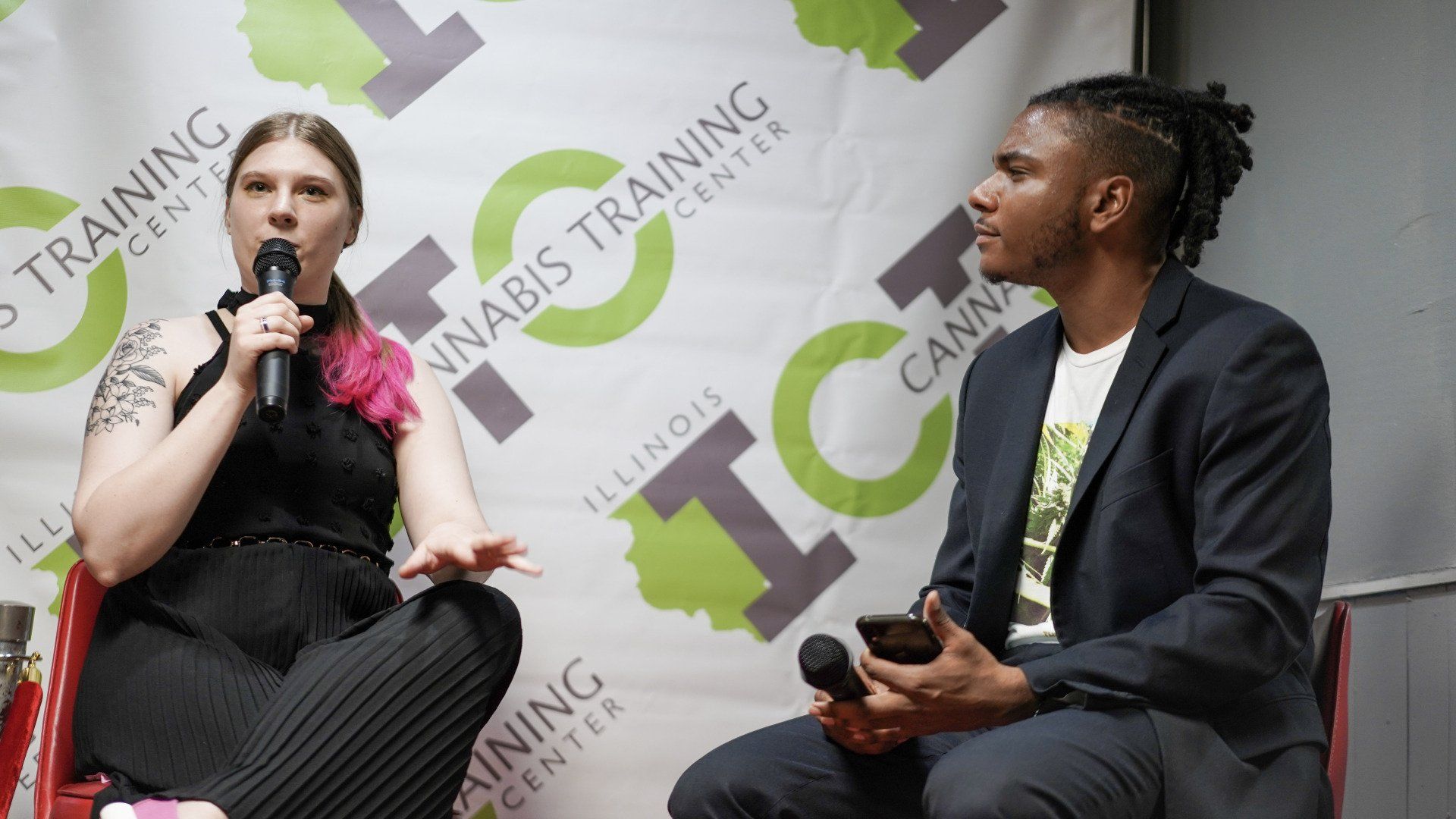Illinois Cannabis Training Center, Inc. 2021 Midwest Road Ste. 200 Oak Brook, IL 60523
Phone: Email: Social Media:
3 Tips to Cultivate Your Cannabis Network
Maximize your network to accelerate your cannabis career.

Have you ever heard the saying “Your network is your net worth?” As career seekers and business owners flock to the cannabis industry to join in on the green rush, we are often asked “what can I do to position myself for new opportunities created by cannabis?”
My answer: Build Your Cannabis Network.
As a facilitator and guest speaker, I have been the host of dozens of events in the cannabis industry. My favorite is the
Illinois Cannabis Resource Networking Night. Each month on the Third Thursday, Illinois Cannabis Training Center hosts an in-person networking event for individuals, entrepreneurs, and professionals in the cannabis industry.
I often find that while individuals know networking is important, they underestimate how it can jumpstart their career in the cannabis industry.
What is Your Cannabis Network?
Your cannabis network is made up of individuals you can call upon to be a resource to you when you need it.
Why do you Cannabis Network Matter?
What makes your cannabis network valuable is the quantity and the quality of the contacts you can call upon. These relationships can make a real difference when seeking out new opportunities and solving problems when they inevitably arise.
Individuals in your network can help refer you to new roles, organizations, and opportunities you weren’t aware of. When you’re in a bind, your network is who you will call upon to help you overcome an obstacle.
You don’t have to work toward your goals alone. By having a strong cannabis network, you can move faster toward your goals in the cannabis industry with others who can support.

3 Tips to Build Your Network
Building your network takes time and consistency. The tips to build your network are to: show up and shake hands, give more than you get, and be authentic.
Show Up and Shake Hands
There are dozens of events going on in the cannabis industry each month. Show up! Make your face known within the community. And more importantly, shake hands with others in the space. When you shake someone’s hand use a firm grip and make eye contact to get the attention of the person you are interacting with.
Give More Than You Get
In our relationships, we are always giving and receiving. You need to give more than receive or get to grow your network quickly. When you give more than you get, you build a reputation as someone who adds value and is trying to help. This is key because soon the people you’ve met and helped will start making introductions for you. You know you’ve established a reputation as a giver when others begin talking about you in rooms you aren’t even in.
Be Authentic
Be yourself. If you’re not, others will notice inconsistencies in your story and think of you as untrustworthy. Avoid this by being authentic. It’s okay if you don’t know anything about the cannabis industry. It’s okay if you have a super-specific interest or vision! Be honest with yourself and be authentic in your interactions with others. Your people will find you and your network will grow.

Building a Network Takes Time
In conclusion, It takes time to grow your network. By showing up and shaking hands, giving more than you get, and being authentic you can make real strides to build a network in cannabis.
The time you invest in building your network is important. As your network can create real value in building your cannabis career.
My suggestion is to join me, the ICTC team, and our cannabis community at our next networking night. We bring together guest speakers for the cannabis industry, new license holders, business owners, professionals, and career seekers each month to network, discuss, and share resources.
Learn more and buy your ticket here.



Illinois Cannabis Training Center | All Rights Reserved









